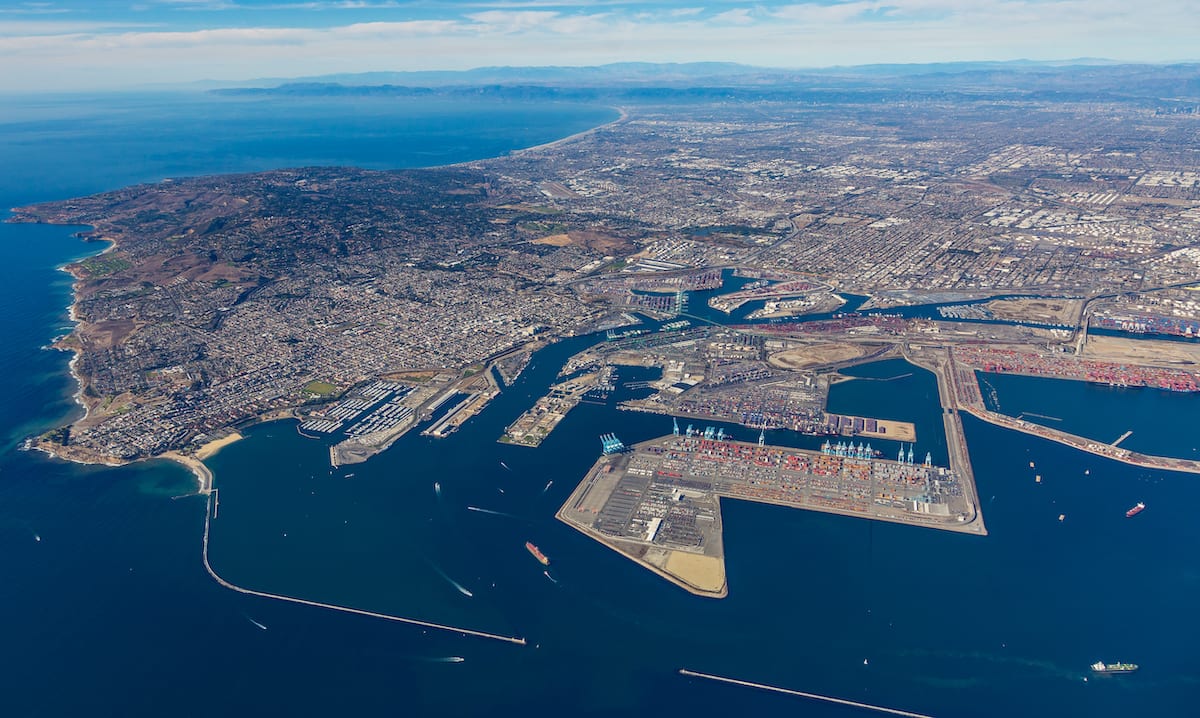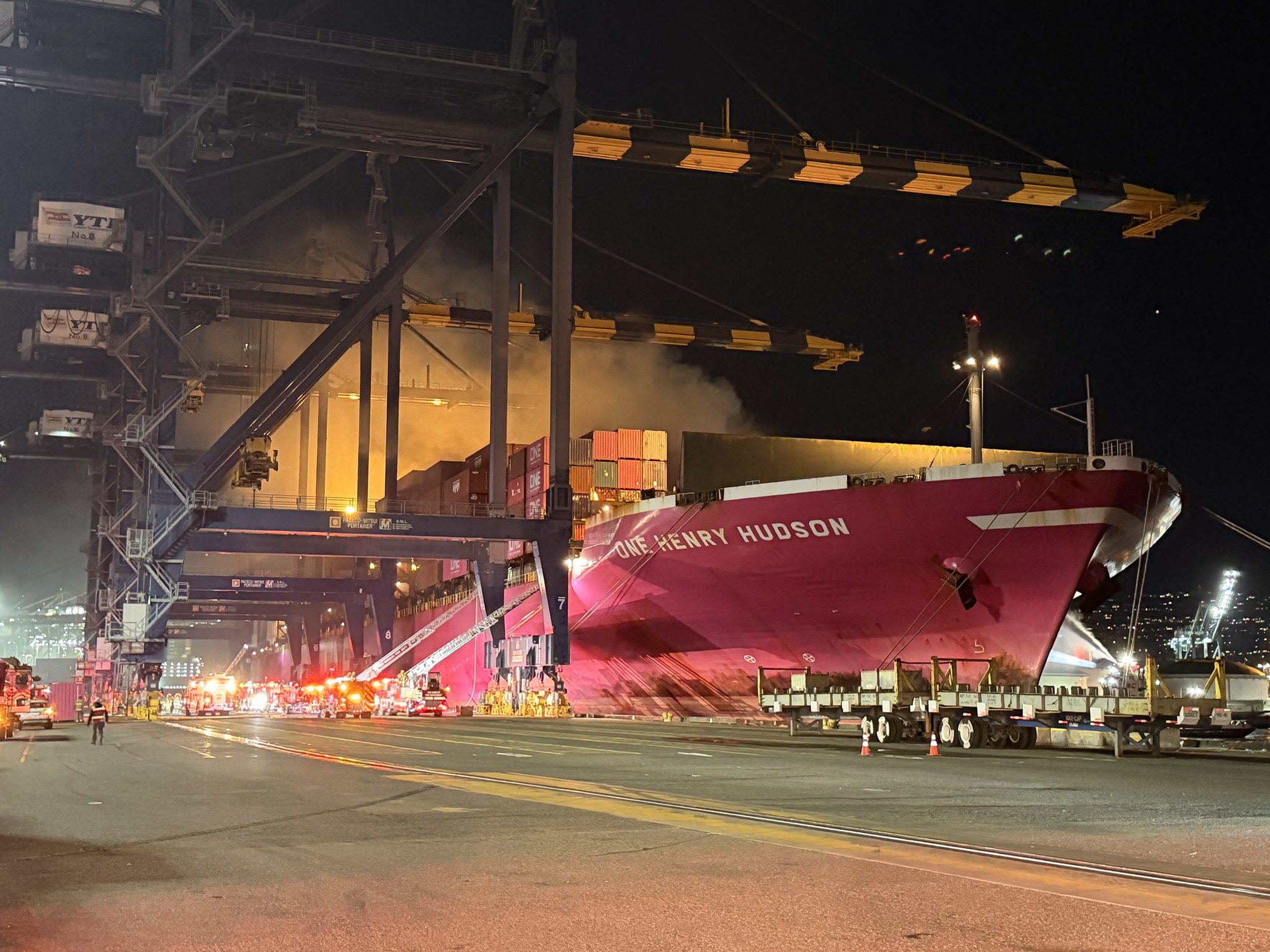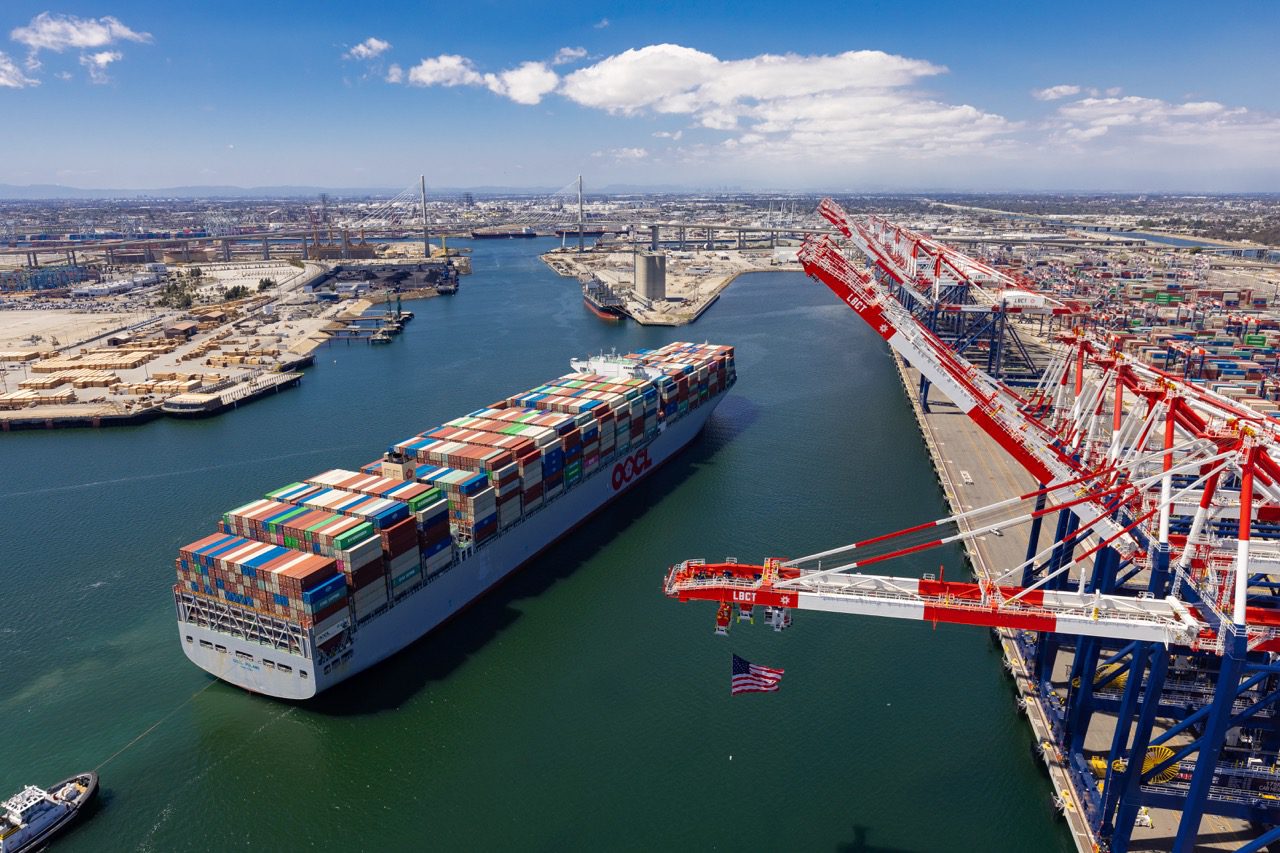Updated: April 16, 2021 (Originally published January 15, 2021)
The Port of Los Angeles reported its fourth best year on record in 2020 as a late-year surge of pandemic-induced consumer spending helped boost volumes to near 2019 levels.
In 2020, the nation’s busiest container port moved 9.2 million Twenty-Foot Equivalent Units (TEUs), Port of Los Angeles Executive Director Gene Seroka announced Thursday at the Pacific Merchant Shipping Association’s sixth annual State of the Port of Los Angeles.
“Our container business in 2020 was the most erratic we have ever seen, with volumes plunging nearly 19% in the first five months of the year, followed by an unprecedented second-half surge,” Seroka said. “Our ILWU longshore workforce did a great job adapting to the huge swings in volume, as did port truckers and everyone else involved in moving cargo through our Port. In a year of great difficulty, we are extremely grateful for the tenacity and resolve of all of our partners.”
The Port of Los Angeles’ third- and fourth-quarter 2020 cargo volumes increased 50% over the first half of the year, with the port handling a remarkable 94% more traffic the week before Christmas than the same week in 2019. The Port ended the year down approximately 1.5% compared to 2019 cargo volumes.
The Port of Los Angeles busiest year was 2018, when it moved 9.4 million TEUs. 2020 now ranks as the fourth-busiest behind 2018, 2017 (9.3MM TEU) and 2019 (9.3MM TEU), respectively.
During his speech, Seroka laid out the Port’s priorities for 2021, including job creation, cargo growth, infrastructure investment, accelerating zero emission technology development and deployment, and continued development of a thriving waterfront community. He also reiterated the port’s focus on supply chain efficiency and optimization, calling for nationwide port data connectivity that could provide enhanced visibility, efficiency and choice for cargo owners, as well as a more stable supply chain.
“If we want America to improve as a leader in global trade, we need nationwide port data connectivity with agreed-upon data standards and open architecture system that provides interconnectivity between major U.S. ports, service providers and the freight they move,” said Seroka.
Editorial Standards · Corrections · About gCaptain

 Join The Club
Join The Club











